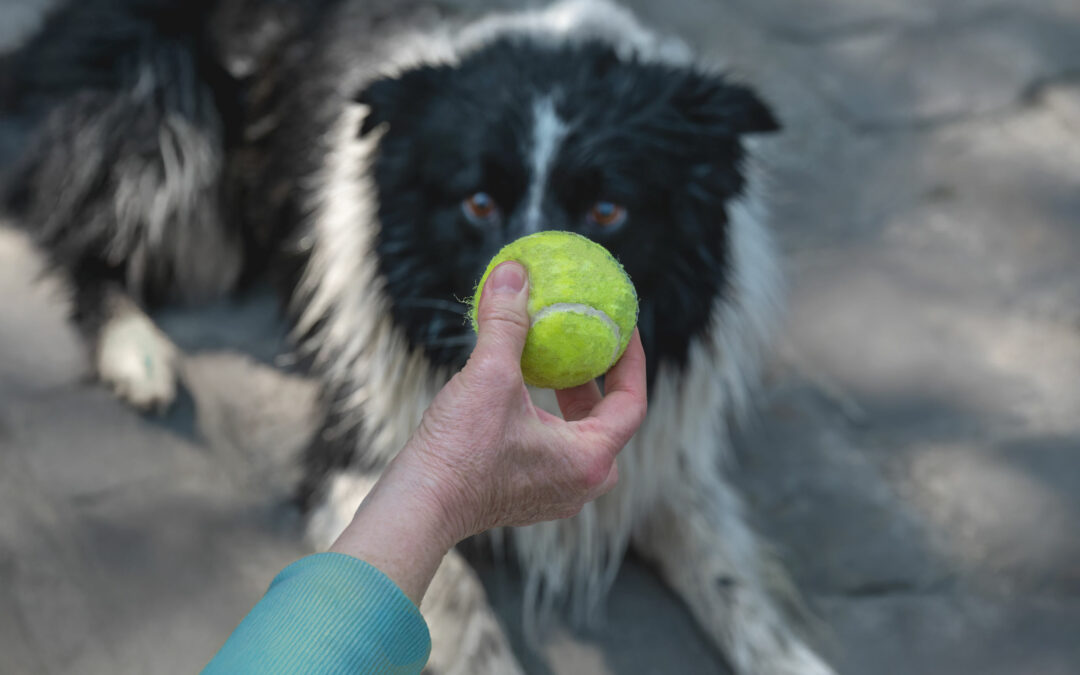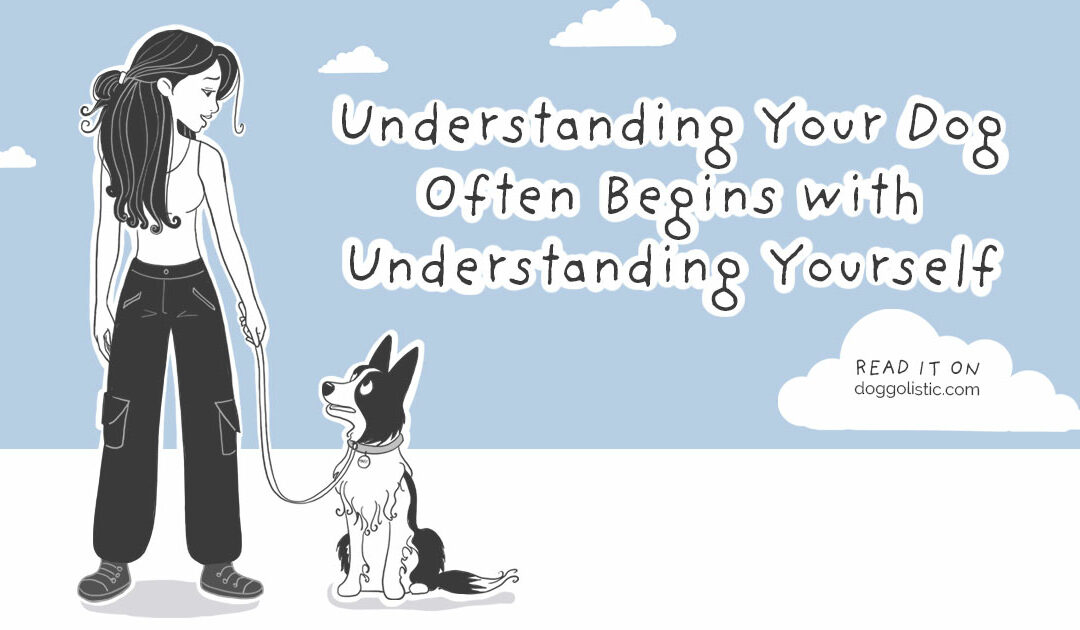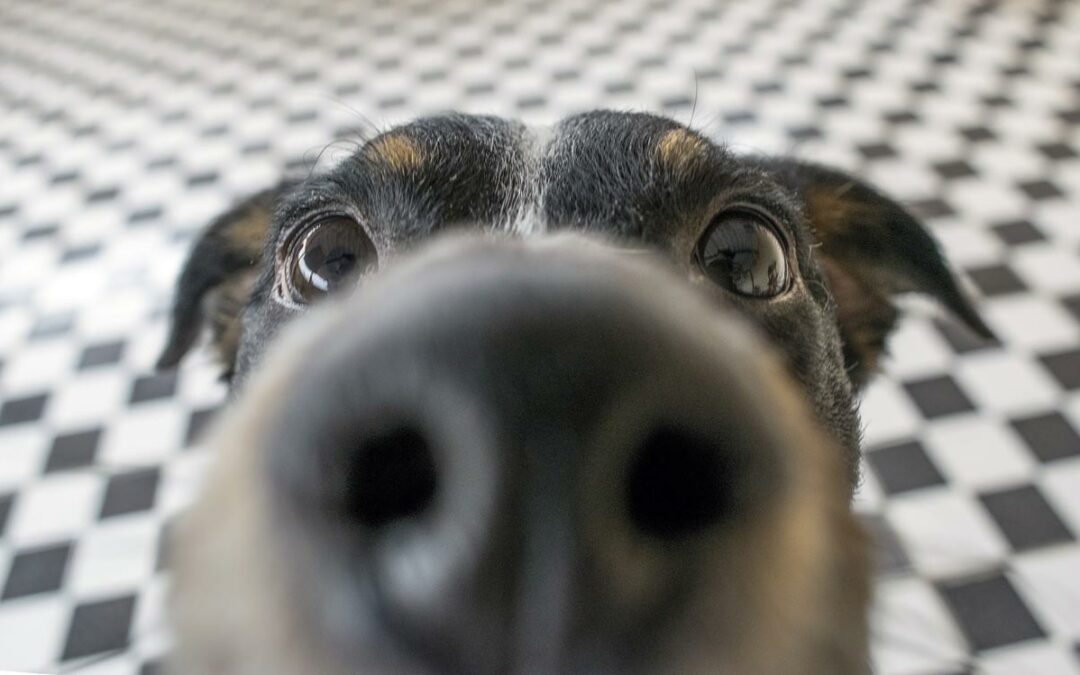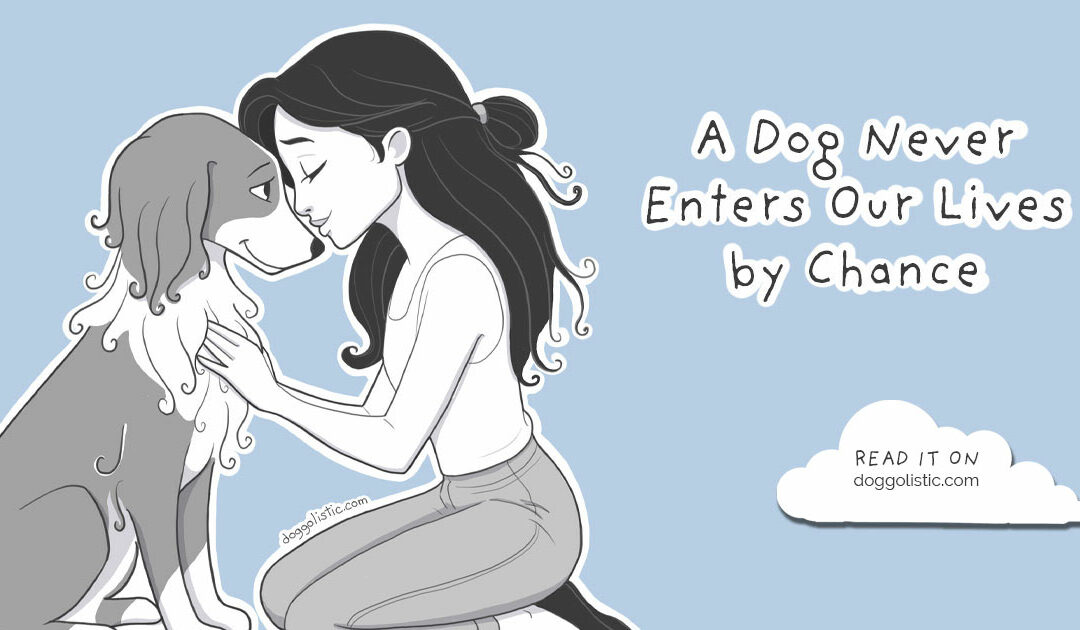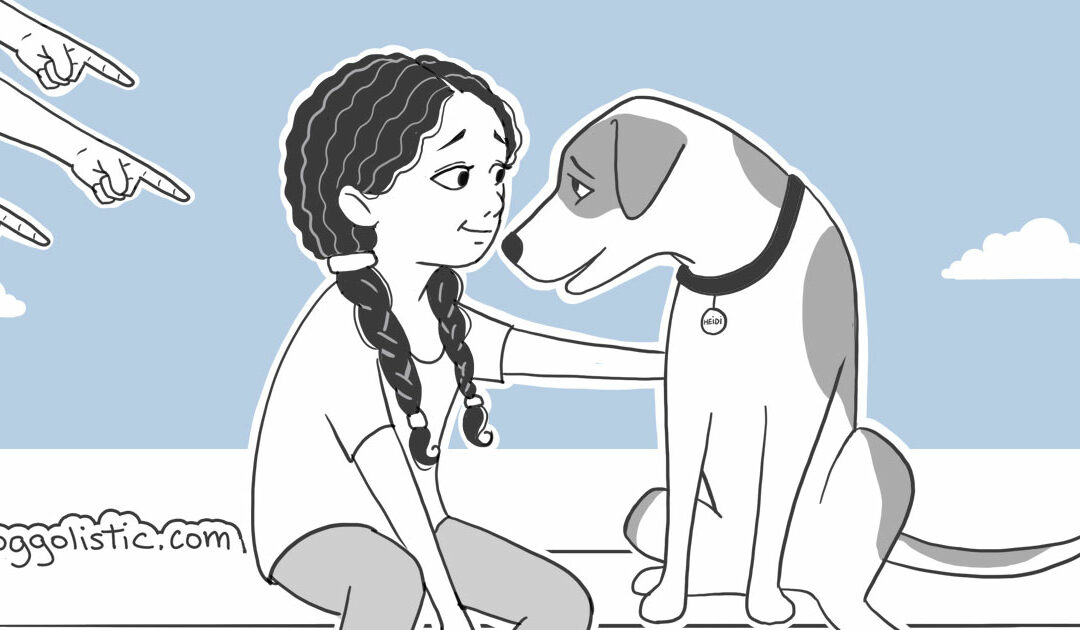When Just Being a Dog No Longer Cuts It
Our expectations of dogs have become enormous. More and more, they’re modeled after how we humans function: logical, structured, goal-oriented, fast, efficient. But dogs never asked for any of this. They have no concept of performance, or objectives. They don’t understand the human obsession with what’s “good” or “bad.” All they want is to live alongside us, to play, to give and receive love, and they do it with their own kind of intelligence, with immense heart, and with skills we can’t even conceptualize.
Superhuman Skills That Should Inspire Humility
A dog can sense changes in your heart rate, detect elevated cortisol in your bloodstream, pick up on a pregnancy before the woman herself even knows, anticipate a seizure, detect cancer, perceive discomfort in a stranger across the room, and even sense harmful intentions. They pick up on our silences, our tension, our micro-expressions. They smell things from kilometers away, and all the scents we’ll never detect. They perceive more than they process, at least according to our criteria, and that’s what makes them so extraordinary. So why do we demand that a creature already so remarkable also be perfect by human standards?
Behind the Myth of the “Good Dog”
A lot of people want a “good dog.” But that phrase usually hides a long list of unspoken human expectations: they must tolerate being alone, not pull on the leash, not bark, not jump, stay off the couch unless invited, not chase pigeons, get along with every dog and every person, allow kids to climb on them and pull their ears, and obey instantly and joyfully, without hesitation or repetition. And if they like cats on top of all that, well, then they’re a real gem.
We expect dogs to fit in better than we’ve ever fit in anywhere. We expect them not to disturb, to adapt to our schedule, our space, our stress, our moods, our fatigue. But in that vision, where does the dog fit into all this? As a living, sentient being, with their own needs, boundaries, emotions, and language?
We measure our dog’s cognitive and emotional intelligence using human tools and standards: speed of execution, precision, memory, understanding, emotional regulation, optimism. But dogs aren’t smart like us, and certainly not for us. They are intelligent in their own way, and for themselves.
Every Dog Is a Good Dog—If We Stop Asking Them to Be Human
In my work as a behaviorist and trainer, I meet dogs whose humans say they have “behavioral problems,” that they’re “difficult,” that they “don’t listen,” or worst of all—that they’re “kind of dumb.” Nearly every time, the dog is simply misunderstood. Their needs aren’t being met, or no one has taken the time to teach them properly.
Before pointing out what’s “wrong” with the dog, I always start by helping the human realize they already have a good dog. I show them the dog’s intelligence, kind heart, eagerness, enthusiasm—in short, all the qualities that already make them exceptional.
The Dog: Always Judged Through Our Human Lens
We wouldn’t be surprised if a horse stepped on a basket or a couch without knowing the difference. And we easily understand that such a large animal needs to run, it’s in their nature. Likewise, no one protests the idea that wolves need to howl and live in packs. But when it comes to offering the same level of understanding to our dogs, there’s suddenly no one left in the room.
We Think We Know Dogs But We’ve Only Just Started Learning About Them
Humans have lived with dogs for thousands of years. From that, we’ve drawn the rather questionable conclusion that they should understand our rules, our intentions, and our worldview—this world that, to them, remains endlessly complex.
We ask them to understand so much, often without even considering whether they’re capable of doing so. Case in point: while science has studied lions, monkeys, and elephants for centuries, it only began to seriously research dogs at the very end of the 20th century. As if this proximity had somehow made them invisible.
Our Expectations Often Go Against a Dog’s Nature
A naturally social, active animal condemned to boredom and solitude
Some dogs are forbidden from entering the house, forced to live isolated from their family. Others, “luckier,” are expected to quietly accept that this tiny solo cushion in a dark corner of the living room is “THEIR bed,” while the couch is off limits.
Everyone does what they want, of course, but it’s essential to understand and accept a dog’s natural desire to access the family space. Like wolves, dogs are social animals, and for 15,000 years, we’ve trained them to enjoy our touch and companionship.
We’ve also taught them to live with us: guard dogs, herding dogs, hunting dogs… Those adopted into families had roles and responsibilities matching the jobs they were bred to do.
But we humans evolved—faster than you can say kibble—into 9-to-5 urban dwellers, and that shift came with the idea that anyone can own a dog, regardless of their lifestyle, living space, understanding of canine needs, or what they’re capable of offering the animal.
As a result, millions of dogs around the world are left alone for entire days, barely have their basic needs met, and yet are scolded or punished when they express anxiety caused by a lifestyle that runs counter to their most fundamental needs.
The Barking That Annoys Us Was Invented For Us
We ask dogs not to bark, or at least not too much, or too long, or too loudly. Yet barking is their natural mode of communication and they developed it specifically to communicate with humans. Their ancestor, the wolf, almost never barks.
When I was a kid—back in the last century and millennium—in Quebec where I’m from, some owners, tired of hearing their dogs bark at the gate, would have their vocal cords surgically cut. Thankfully, that mentality has evolved, but it shows just how far humans are willing to go for their own comfort, even at the expense of others’ wellbeing.
Dogs Walk Twice as Fast as We Do
Then there’s the leash. That infamous leash. That piece of rope linking our two worlds, a symbol of safety, yes, but also control, forcing dogs to match our frantic snail’s pace, even though their natural cruising speed is twice ours.*
Where We Impose Rules, Let’s Offer Kindness
I’m not saying we should all quit our jobs. I’m not saying no one with a career should own a dog. I’m not saying dogs shouldn’t be leashed in cities, or that it’s fine if they bark nonstop and annoy the entire neighborhood.
All I’m saying is this: it’s important to recognize the effort we ask of our dogs every day. To be aware of all the natural behaviors we expect them to suppress—for life—for reasons they cannot understand, only accept.
Acknowledging that living in our loud, stressful, inconsistent bipedal world, with rules that often run counter to their wellbeing, is a major challenge for them, will inevitably guide us toward a gentler, more patient, and more respectful way of educating them.
What If the Roles Were Reversed?
What would you do if your plane crashed in the jungle and your only chance of survival was to instantly adapt to that strange, foreign environment?
What if you landed in a wolf pack’s den with very clear, well-established rules, but had no idea how any of it worked?
What would you do if, disoriented, every time you tried to do something in your new gorilla family, the alpha grabbed you by the ankles and threw you ten meters away to show you “that’s not how it’s done”? Or if mama grizzly started screaming at you because you dared to take a piece of meat she’d left lying around?
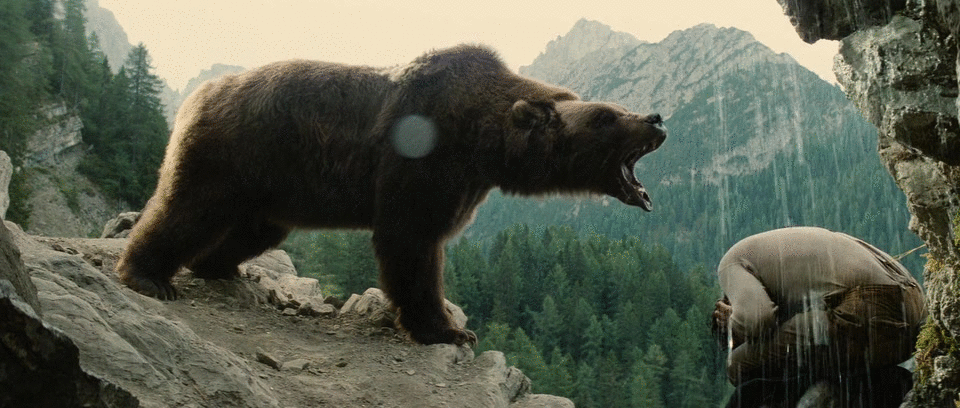
“NO!!! I said NO!!! NOT ON THE BED!!!” – L’OURS / J. -J. ANNAUD
I don’t know you personally, so I can’t say exactly what you’d be thinking (probably something like “I knew I shouldn’t have booked Malaysia Airlines”), but here’s one thing I do know: you’d be absolutely miserable, constantly stressed, and feel like everyone expected way too much from you.
For More Compassion: Get Down to a Dog’s Level
To your dog, the couch is just a warm, comfortable place that smells like their human and where they could lie down close to their family. Of course they want to be there.
That delicious-smelling cookie, left unsupervised on that four-legged wooden structure humans call a “table”? It’s just an unclaimed resource, left on a thing that’s easy to climb. Of course they want it, and in their mind, they’re perfectly entitled to it.
When we leave in the morning, they don’t understand why we—the center of their world—vanish, leaving them behind. Everything in their being tells them they’re supposed to be with us, always, everywhere.
Their rules aren’t our rules. Their reference points and interpretations aren’t ours either. So it’s up to us to explain—with patience and gentleness—what we expect. Positive training isn’t just a nice idea or a philosophy, it’s a necessity. Something we owe them, in return for all the effort they make every day to adapt to us, our lifestyle, and our world, during their short lives.
You may also like |Dog Lead Walks : Their Pace, Their World, Your Bond
Loving a Dog Doesn’t Mean Changing Them, It Means Making Space for Them
In the end, maybe the real question isn’t: “Do I have a good dog?” but rather: “Have I made real space for them in my life?” Not a space that’s conditional on performance. Not the role of a well-trained background character. A real space, where they can be themselves: sniff, explore, sleep, play, love, grumble, communicate.
A dog doesn’t need to be perfect to be a good dog. They need to be understood, guided, gently supported, loved—and to love back. 🐾🖤
* Except for giant breeds, most dogs prefer to trot, which means they have to slow down from their natural average pace of 6 miles/h to our much slower average pace of 3 miles/h. Imagine spending your whole life walking at the speed of a 3-year-old holding your hand.
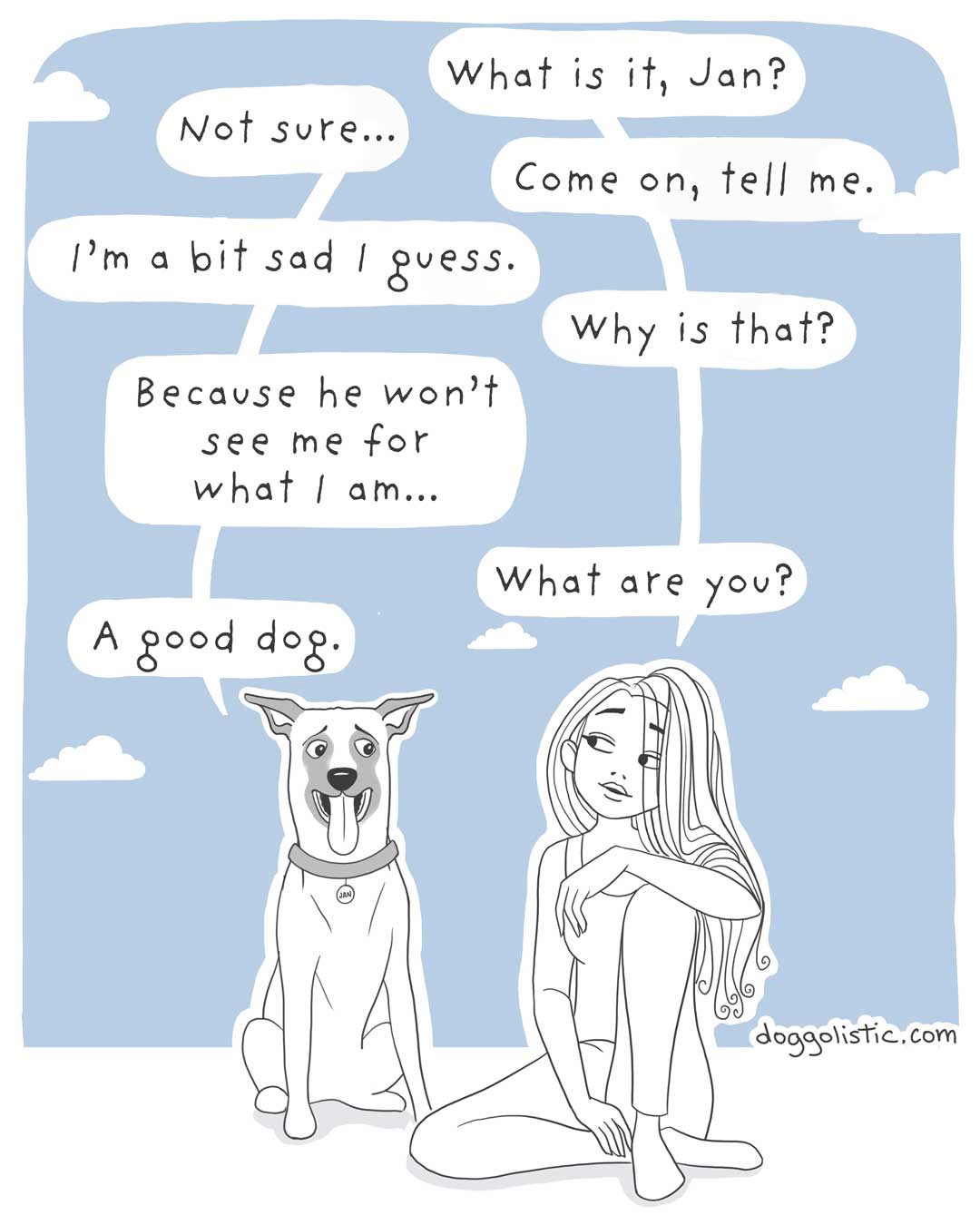
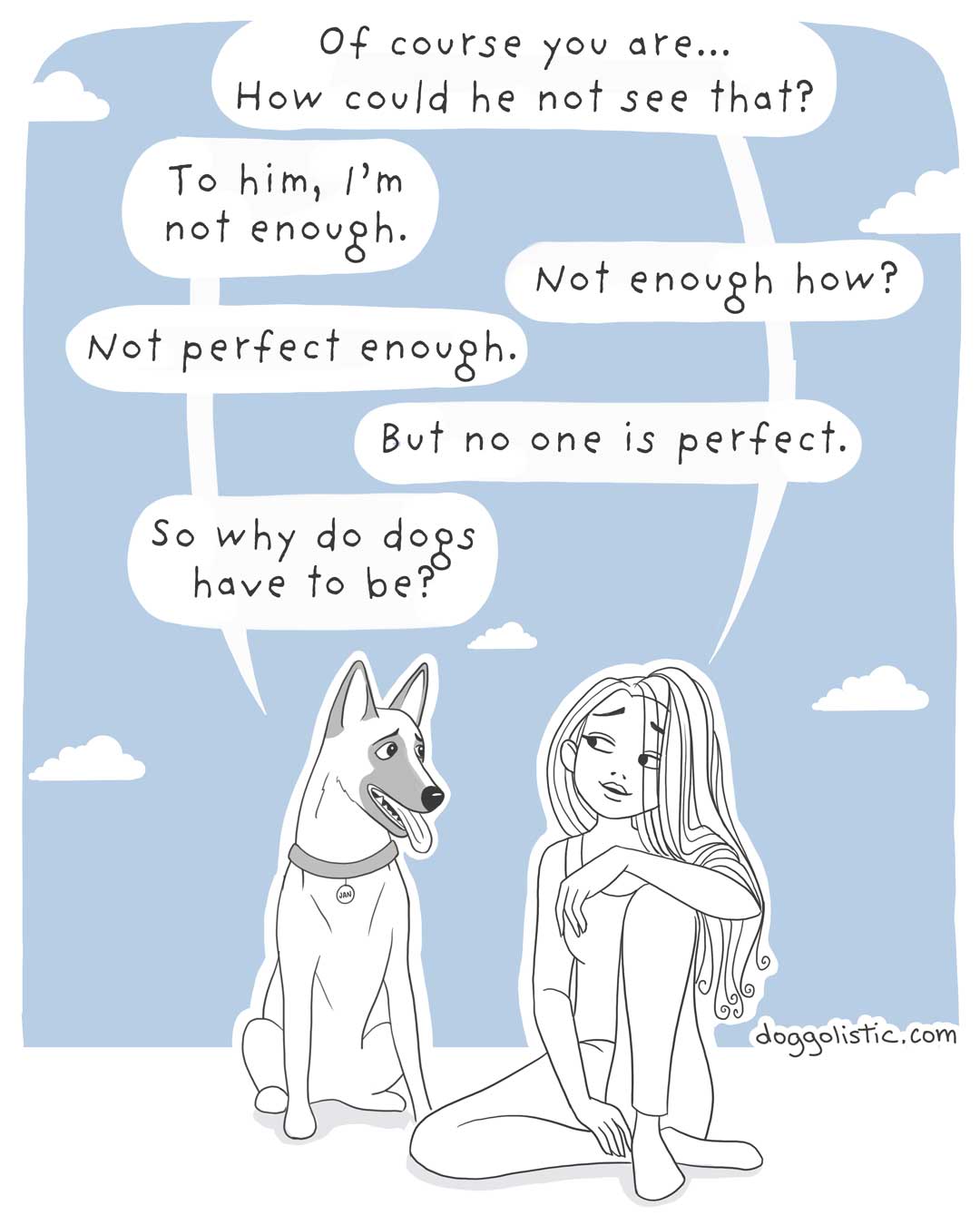
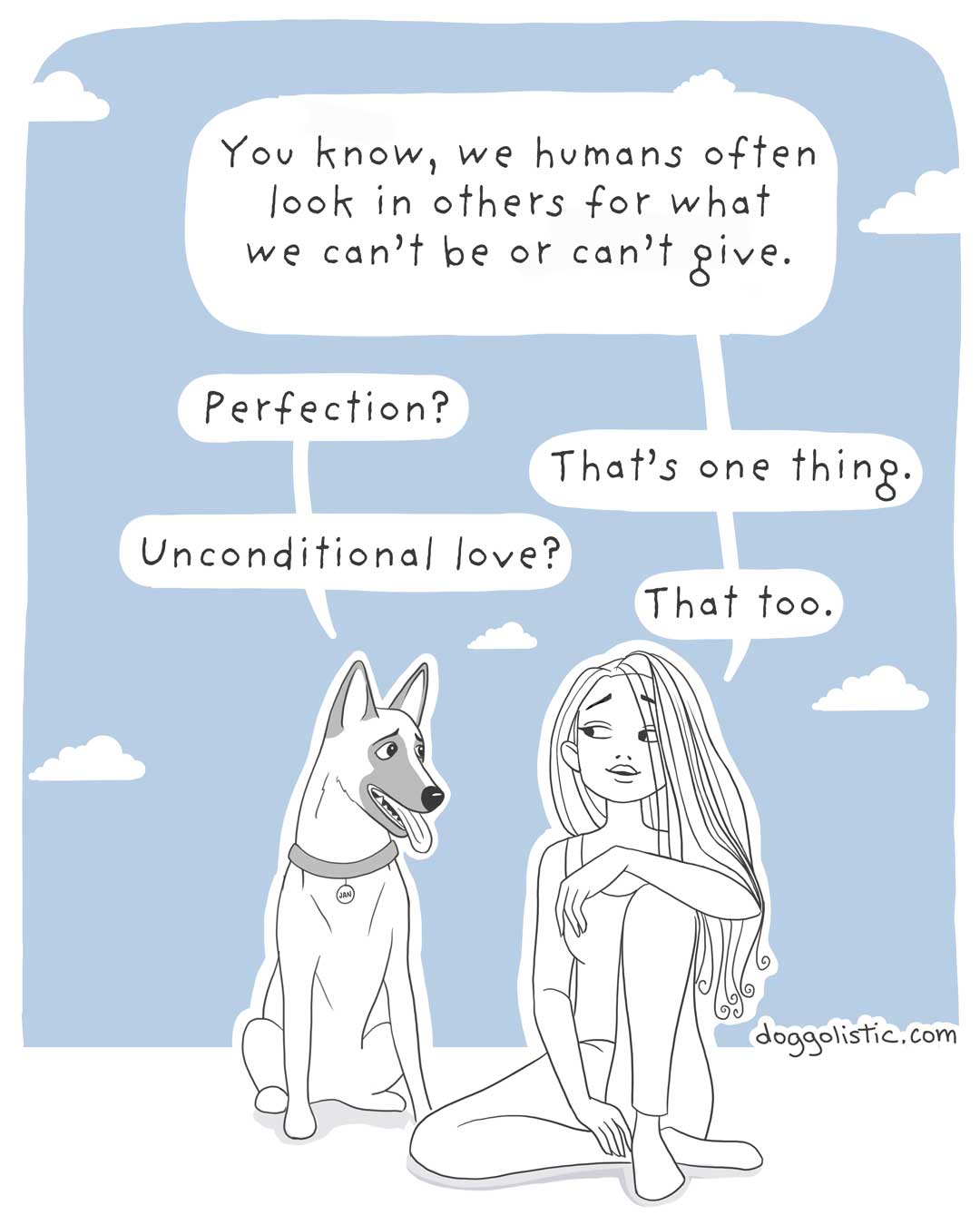
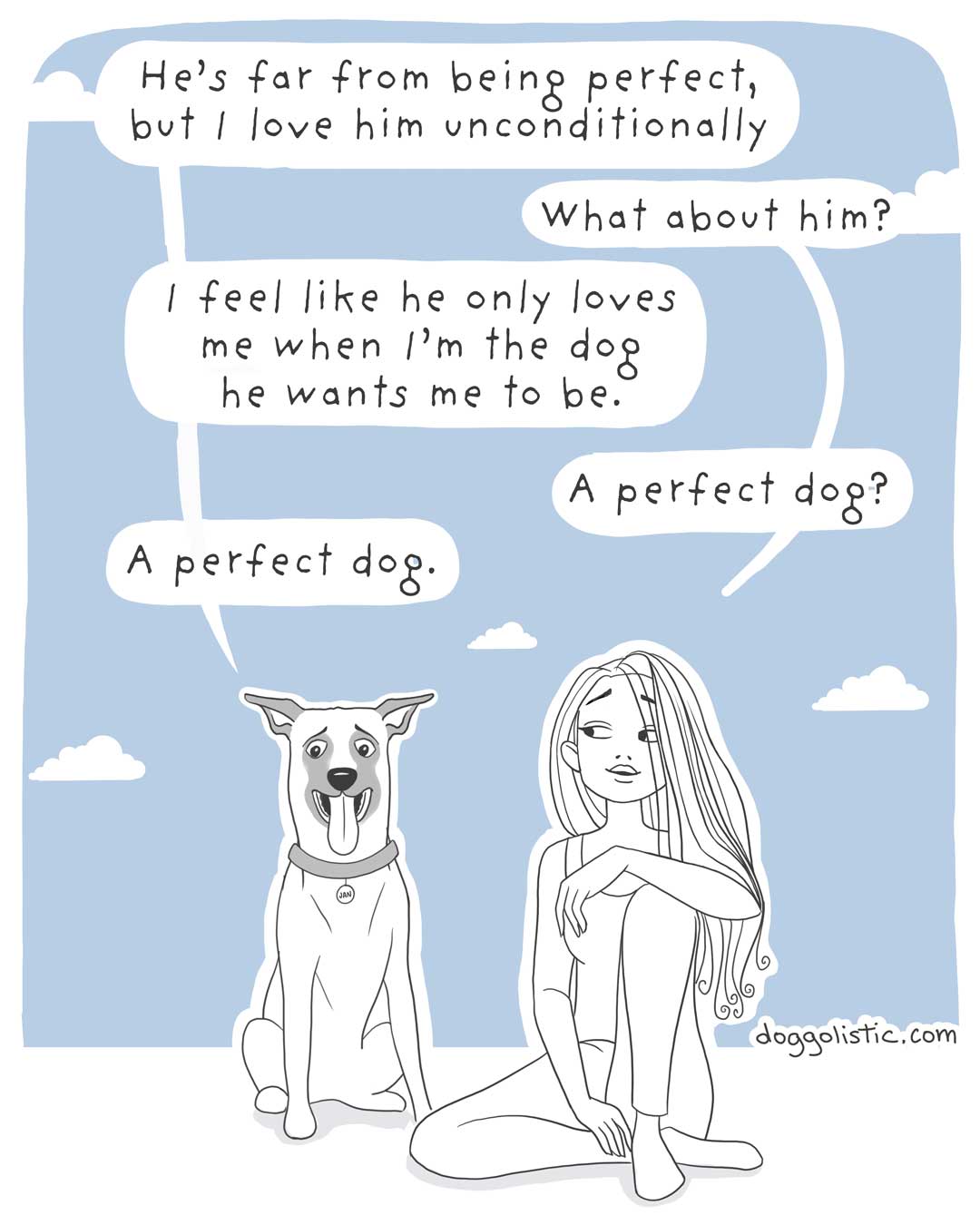
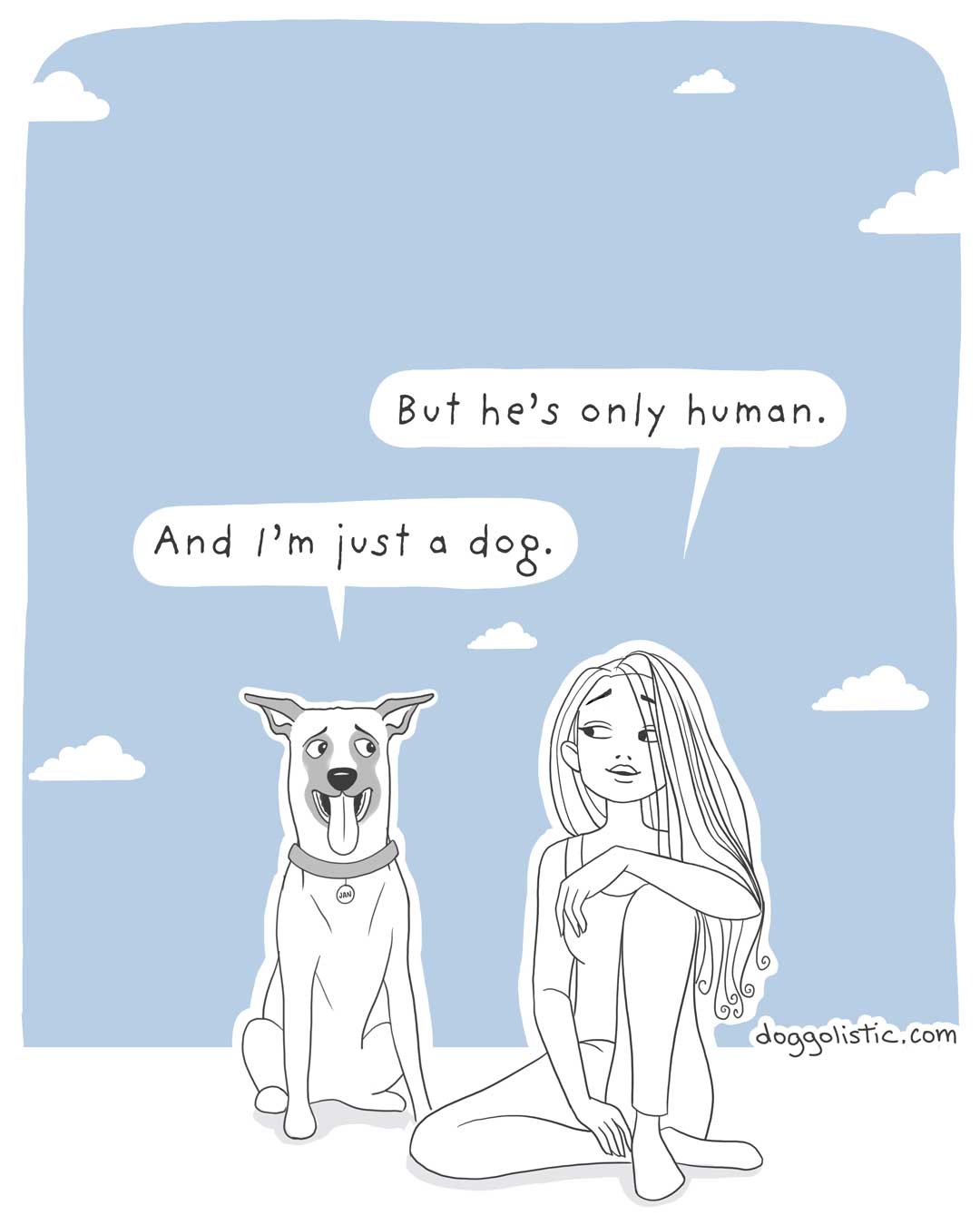
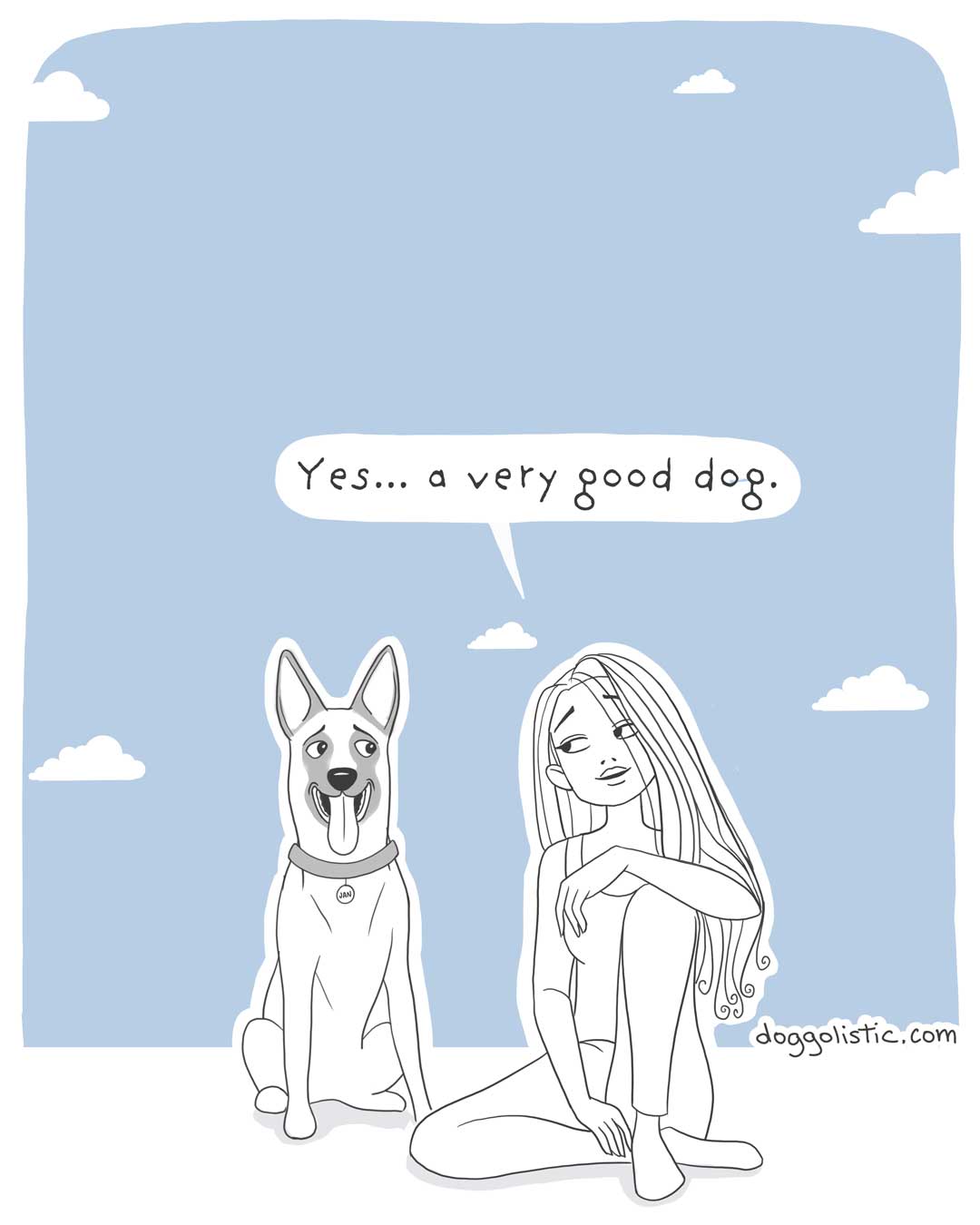
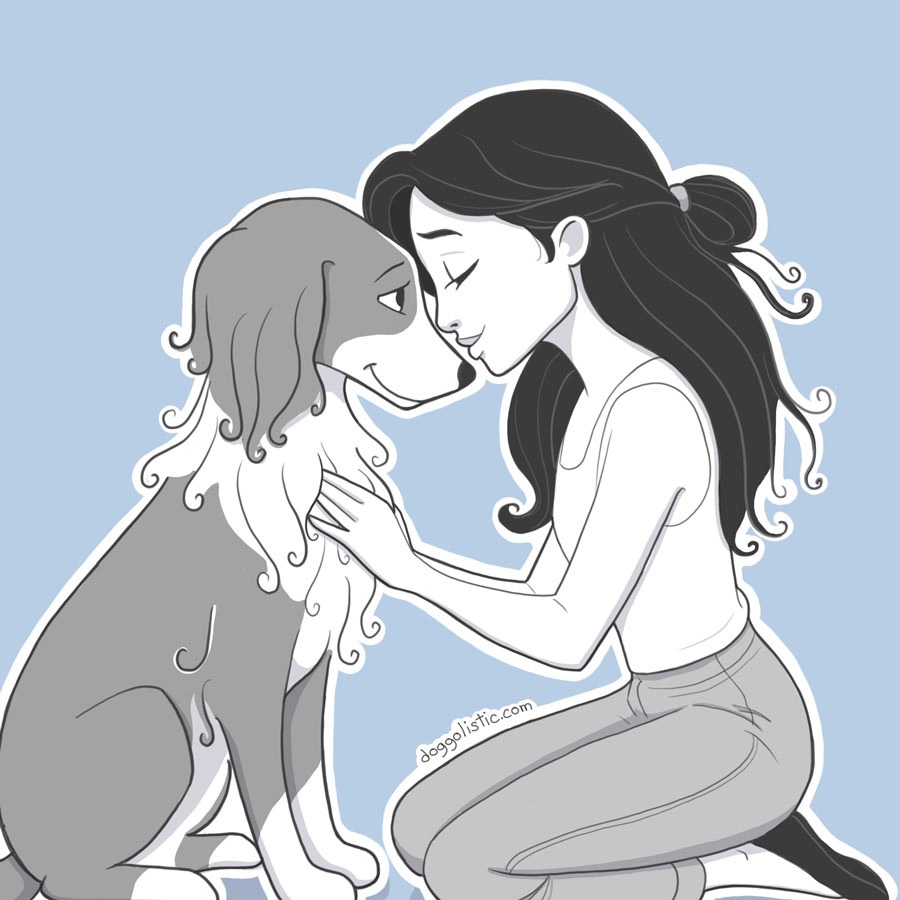
As a dog behaviorist and trainer, I work on the subtle bond between humans and dogs — with all its beauty, its wobbles, and its life. I help humans better understand their dogs — and sometimes, just a little, the other way around, too.


